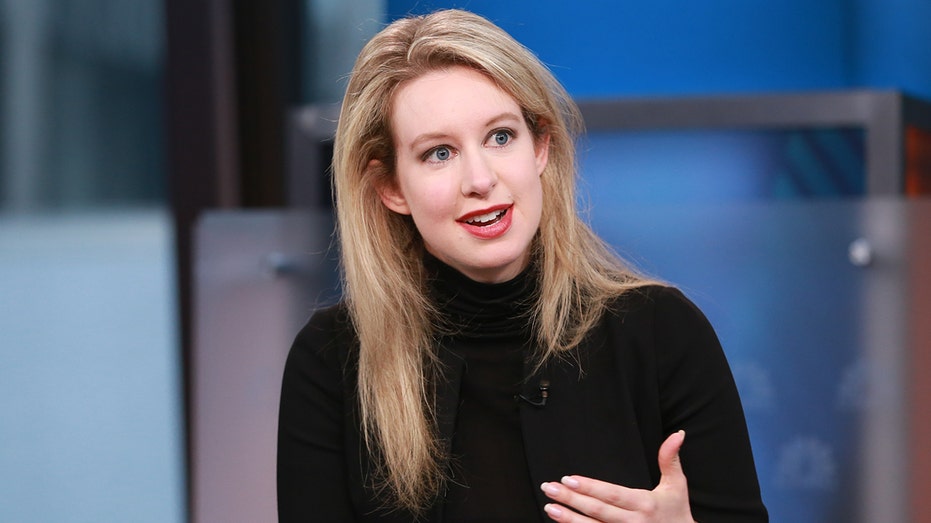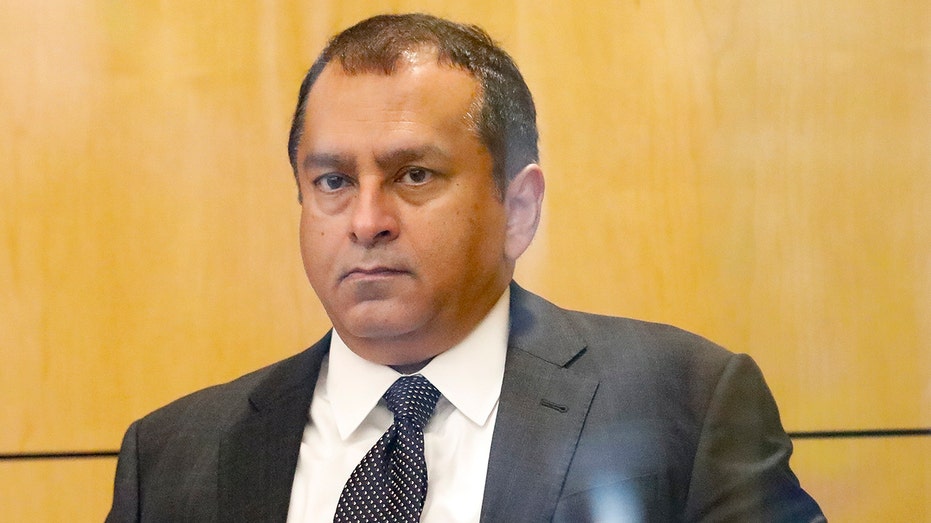Theranos founder Elizabeth Holmes testifies that Balwani berated, abused her
The former couple lived together for more than a decade and ran the blood-testing startup in tandem
Trial under way for Theranos CEO Elizabeth Holmes
Jury selection begins for Theranos CEO Elizabeth Holmes. FOX Business' Lydia Hu with the latest.
In tearful and intense testimony, Elizabeth Holmes recounted from the witness stand Monday how she had been raped as a Stanford University student and not long after entered an abusive relationship with the man who would become her top deputy at Theranos Inc.
The stunning testimony is likely to cap Ms. Holmes’s direct questioning from her lawyers, during which she endeavored to fill out a picture of her now-defunct startup as a company with bold ambitions and an admirable vision that struggled to meet technology deadlines.

Elizabeth Holmes, Theranos CEO and the world's youngest self-made female billionaire, in an interview on September 29, 2015 (David Orrell/CNBC/NBCU Photo Bank/NBCUniversal via Getty Images / Getty Images)
Her comments about her former boyfriend and No. 2 at Theranos, Ramesh "Sunny" Balwani, portrayed a man who berated her, sexually abused her in the bedroom and dictated a punishing lifestyle consumed by work.
"He was astonished by my mediocrity and said that if I followed my instincts I would fail," she testified. He gave her instructions—scribbled handwritten notes on paper—to be a better entrepreneur, and she said she followed them. The pair lived together for 11 years and ran Theranos in tandem.
An attorney for Mr. Balwani has denied all allegations against him.
Prosecutors have released into the court record hundreds of text messages between Ms. Holmes and Mr. Balwani, showing lavish displays of love and affection for each other over several years.

SAN JOSE, CA - JULY 17: Former Theranos COO Ramesh Balwani appears in federal court for a status hearing on July 17, 2019 in San Jose, California. (Photo by Kimberly White/Getty Images) (Photo by Kimberly White/Getty Images / Getty Images)
ELIZABETH HOLMES CLAPS BACK AGAINST SERIOUS ALLEGATIONS ABOUT THERANOS
In her fourth day on the witness stand, Ms. Holmes endeavored to beat back allegations that she had lied about Theranos’s work with the military, that Theranos flouted lab regulations, that the company’s testing devices produced false results and risked harm to patients, and that she was a CEO who rejected and ignored employees’ concerns. She also placed responsibility for much of the company’s operations on Mr. Balwani, while adding that none of her deputies ever told her that Theranos tests were inaccurate or unreliable.
The breaking point for the relationship, Ms. Holmes said, was a 2015 inspection by the Centers for Medicare and Medicaid Services, in which the agency found severe deficiencies in the lab. Theranos subsequently agreed to stay out of the lab business for two years.
Ms. Holmes testified that the results of the inspection were jarring, given that Mr. Balwani had told her "the lab was in great shape and the audit should go very well."
"The findings from those inspections were so fundamentally different from what I believed, so it couldn’t be the case that our operations were running like one of the best companies in the world," she said in testimony Monday.

Elizabeth Holmes, founder and CEO of Theranos, left, leaves the Robert F. Peckham Federal Building in downtown San Jose, Calif., on Tuesday, May 4, 2021. (Nhat V. Meyer/Bay Area News Group via AP / AP Newsroom)
GET MORE ON FOX BUSINESS BY CLICKING HERE
Ms. Holmes acknowledged that Mr. Balwani didn’t control her interactions with investors, business partners or the press but that his influence spanned every aspect of her personal and professional life.
"He impacted everything about who I was, and I don’t fully understand that," she said.
Her attorney, Kevin Downey, said before testimony that Monday would likely bring the conclusion of direct questioning. The prosecution is likely to take up its cross-examination Tuesday, the last day of court proceedings this week. Next week will likely bring another round of questions from her own lawyers, and the government will have an opportunity to call new witnesses with a rebuttal.
This article first appeared in The Wall Street Journal




















